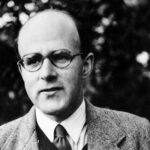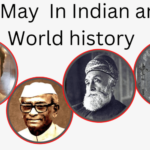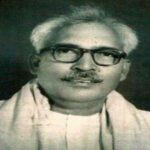Uganda Independence Day marks a pivotal moment in the nation’s history, a time when the country emerged from the shadows of colonial rule to forge its own path. On October 9th, 1962, Uganda waved its new flag with pride, embarking on a journey of self-determination and national development. This day is a reminder of the resilience and unity of the Ugandan people, who came together to claim their right to self-governance. It’s a day filled with patriotic parades, cultural performances, and reflections on the nation’s past struggles and future aspirations. As we celebrate, let’s remember the significance of this day and the enduring spirit of freedom that continues to inspire generations.
HISTORY OF UGANDA INDEPENDENCE DAY
Uganda’s journey to independence is a significant chapter in its history. The country observed its first Independence Day on October 9, 1962, marking the end of British colonial rule. This followed a series of events that began in the late 19th century when explorer Henry Stanley reached the area. Uganda was formally under British influence from 1888, managed by the British East Africa Company, and later as a British protectorate from 1894. The push for independence gained momentum after World War II, leading to the Ugandan Constitutional Conference in London in September 1961, which laid the groundwork for self-governance. The following year, Uganda officially became an independent nation, with celebrations that have since become an annual event, reflecting on the country’s progress and unity. Independence Day is marked by cultural festivities, military parades, and a presidential address, encapsulating the pride of a nation that has navigated a complex past towards self-determination.
SIGNIFICANCE OF UGANDA INDEPENDENCE DAY
Uganda Independence Day, celebrated on October 9th, marks the country’s liberation from British colonial rule in 1962. This day is a profound reminder of Uganda’s journey towards self-governance and the ability to determine its own future. The significance of this day lies not only in commemorating the end of colonialism but also in celebrating the cultural unity and diversity of the Ugandan people. It is a day filled with patriotic displays, cultural performances, and military parades, particularly at the Kololo Ceremonial Grounds in Kampala, where the President delivers a national address. Independence Day serves as an opportunity for Ugandans to reflect on their history, honor the sacrifices of their ancestors, and renew their commitment to progress and democracy. It is a day that underscores the importance of unity and national pride, while also looking forward to the future with hope and optimism.
UGANDA INDEPENDENCE DAY CELEBRATION
Uganda’s Independence Day, celebrated on October 9th, marks the country’s liberation from British rule in 1962. It’s a day imbued with national pride and a deep sense of history, reflecting on the journey and struggles that led to sovereignty. The day is festooned with a myriad of activities that showcase Uganda’s rich cultural tapestry and its aspirations for the future. The Kololo Ceremonial Grounds in Kampala often serve as the epicenter of celebrations, hosting the formal national parade presided over by the President of Uganda. This grand parade is a spectacle of military precision and cultural vibrancy, featuring the ceremonial Trooping of the Colour and a display of the national colours. The air is filled with the harmonious tunes of “Oh Uganda, Land of Beauty” as the President inspects the guard of honour, a moment that unites the hearts of all Ugandans. Religious leaders from diverse faiths take the podium to offer prayers for the nation, invoking blessings and peace. Performances by well-known artists and cultural demonstrations, including traditional dances and festivals, enliven the atmosphere, drawing both locals and tourists into the celebratory spirit. The day is also an opportunity to honor the country’s history and heroes, with seminars and documentaries that delve into Uganda’s journey to independence and the figures who played pivotal roles in that journey.
Food and drink are in abundance, with local and international vendors vying for the attention of the crowd, offering a taste of Uganda’s culinary diversity. The festivities extend beyond the capital, with celebrations held across the country to promote national unity and pride. It’s a day when Ugandans don traditional attire, revel in the nation’s achievements, and look forward to a future of prosperity and stability. Independence Day in Uganda is not just a public holiday; it’s a vibrant expression of the nation’s identity, resilience, and hope.
FACTS ABOUT UGANDA INDEPENDENCE DAY
Here are some interesting facts about UGANDA INDEPENDENCE DAY:
- Uganda celebrates Independence Day on October 9th every year, marking the country’s independence from British rule in 1962.
- The day is commemorated with various national festivities, including a military parade at the Kololo Ceremonial Grounds in Kampala.
- Historical context: Uganda was discovered by explorer Henry Stanley in 1875 and became a British protectorate in 1890 after a treaty between Germany and the United Kingdom.
- Significant progress in Ugandan self-governance began after World War II, leading to the Ugandan Constitutional Conference in London in 1961, which set the stage for independence.
- Uganda’s independence is a source of national pride and is celebrated with cultural performances and demonstrations that reflect the country’s rich history.
- The Independence Day celebrations are not just a display of national pride but also serve to promote Uganda’s image and attract international attention.
- Uganda, known as the “Pearl of Africa,” has a population of over 45 million people and is renowned for its natural beauty and resources.
- The country has experienced both positive developments and challenges since independence, including periods of political instability and the rule of leaders like Idi Amin.
- Since a new constitution was enacted in 1995, Uganda has seen a return to multiparty politics and efforts towards democratic stability.












